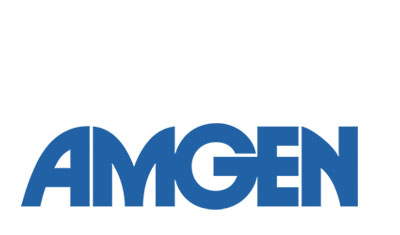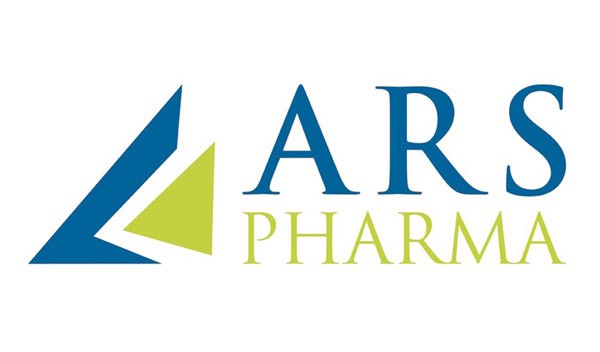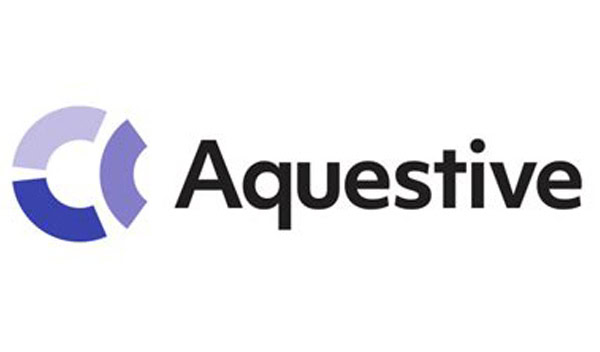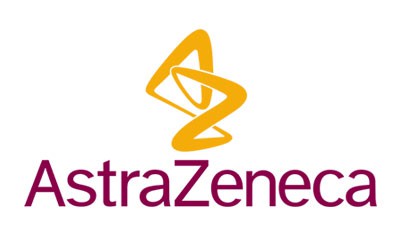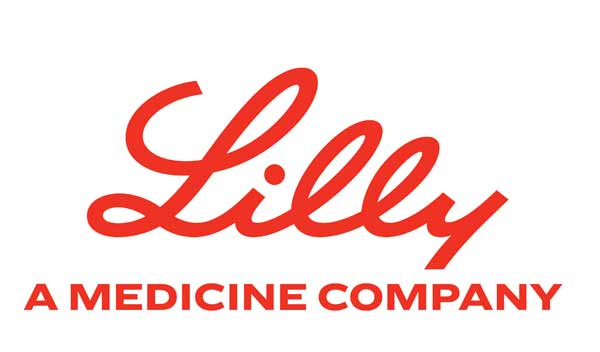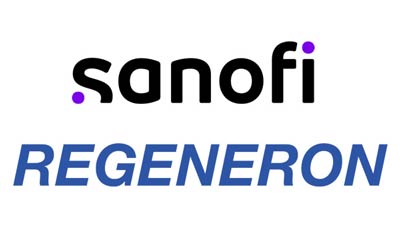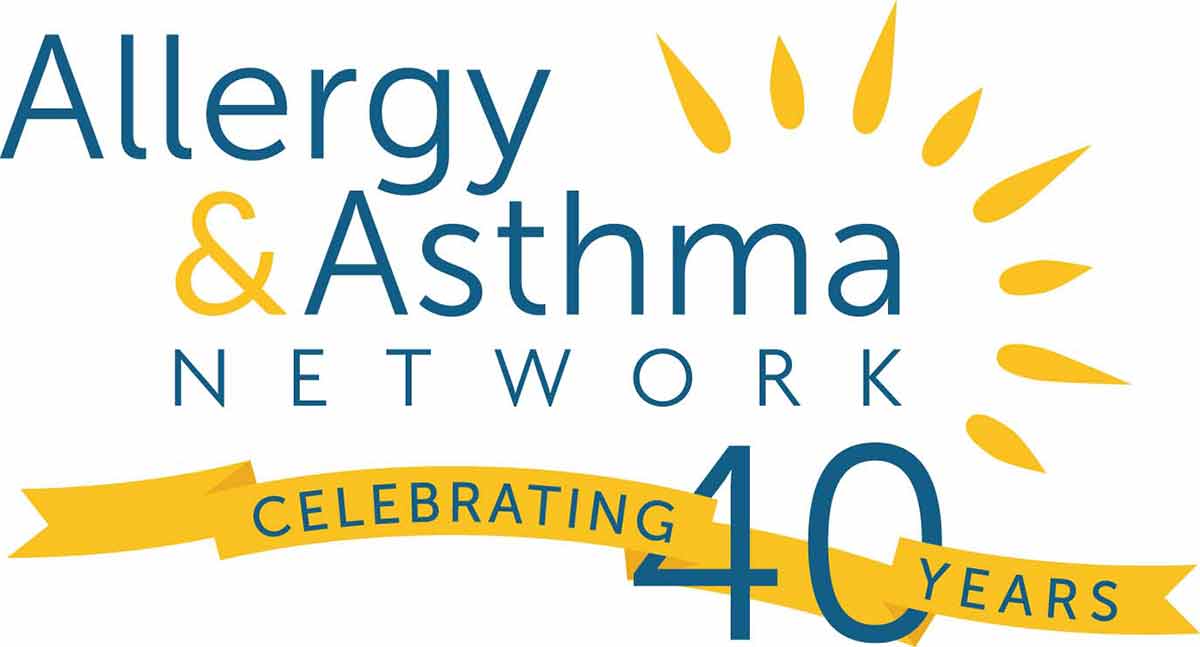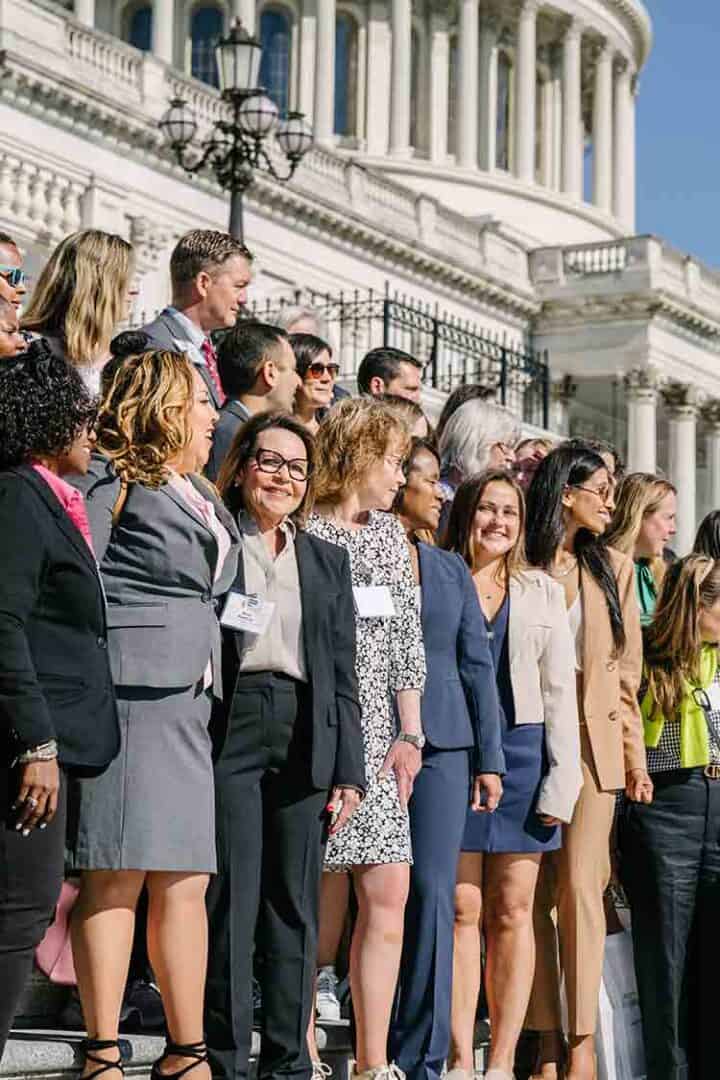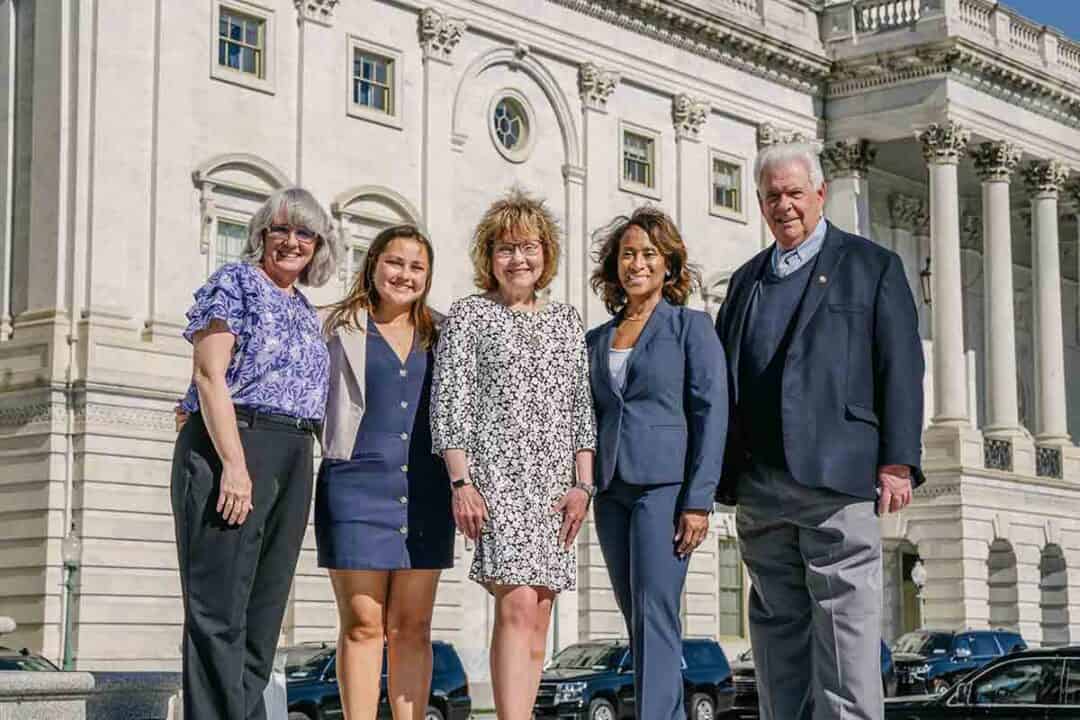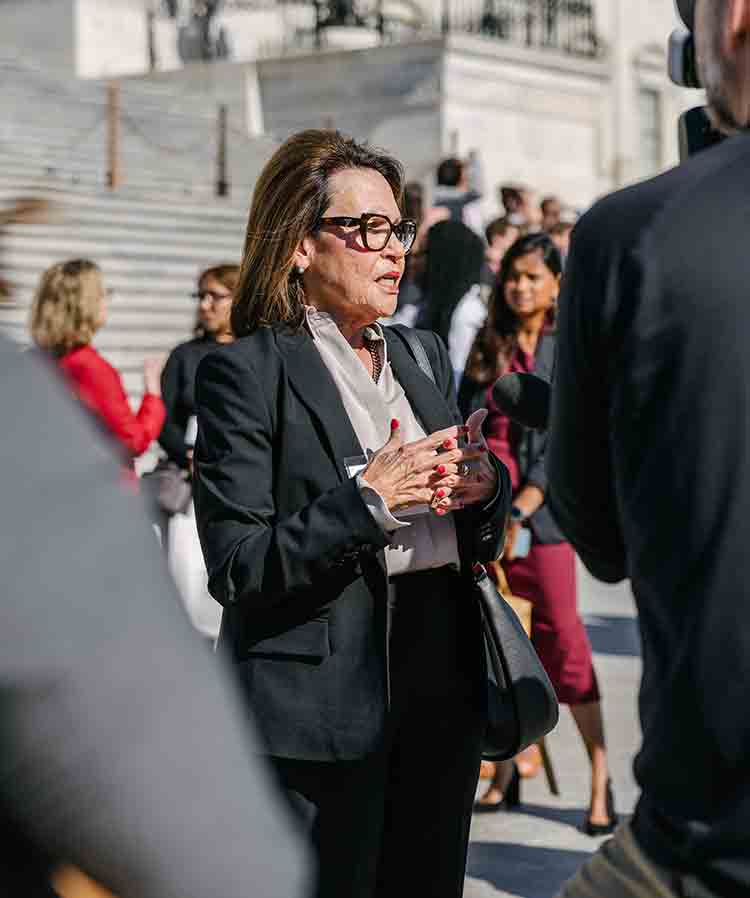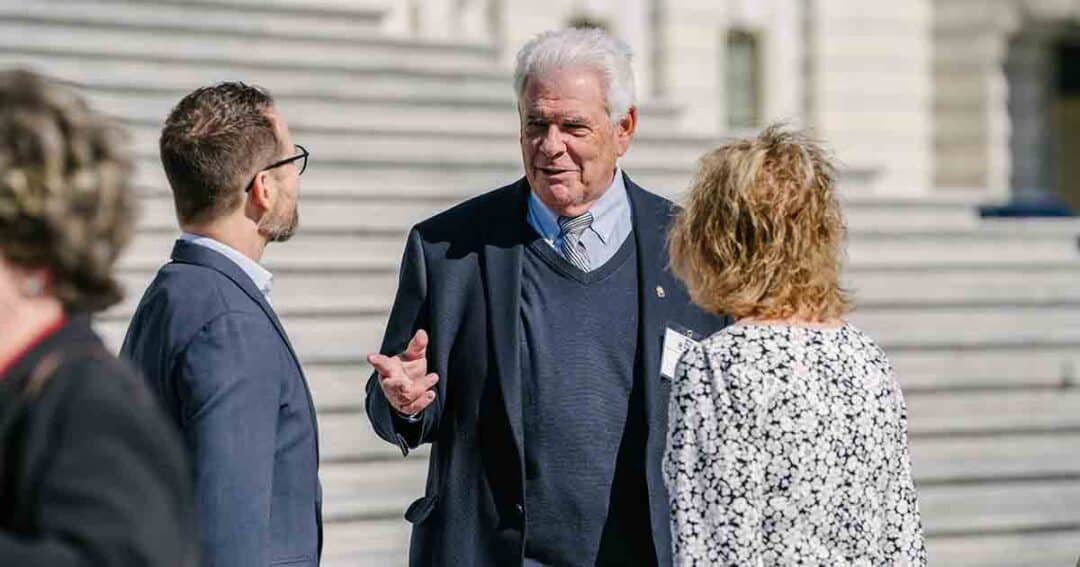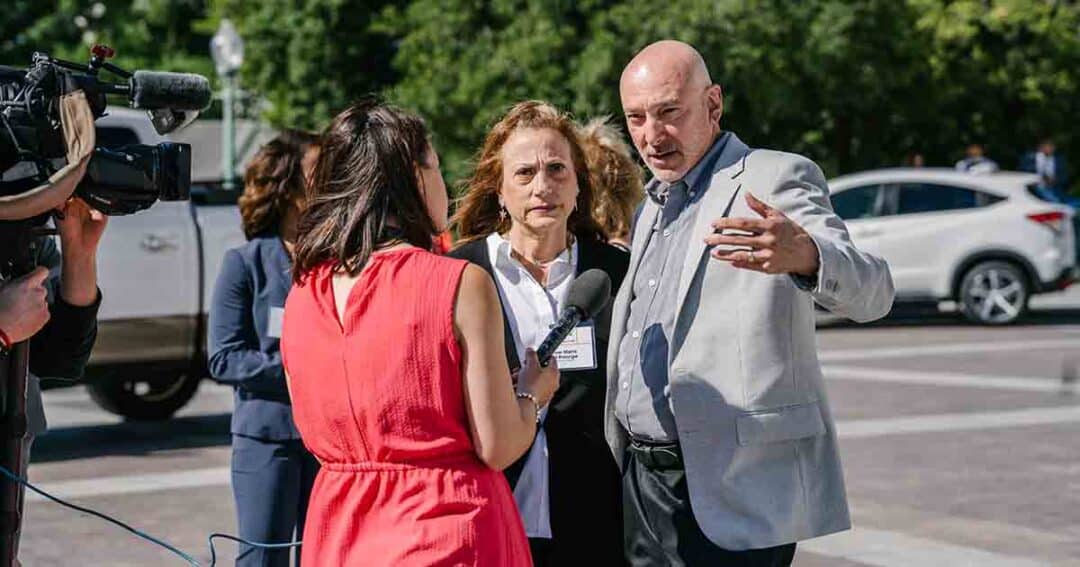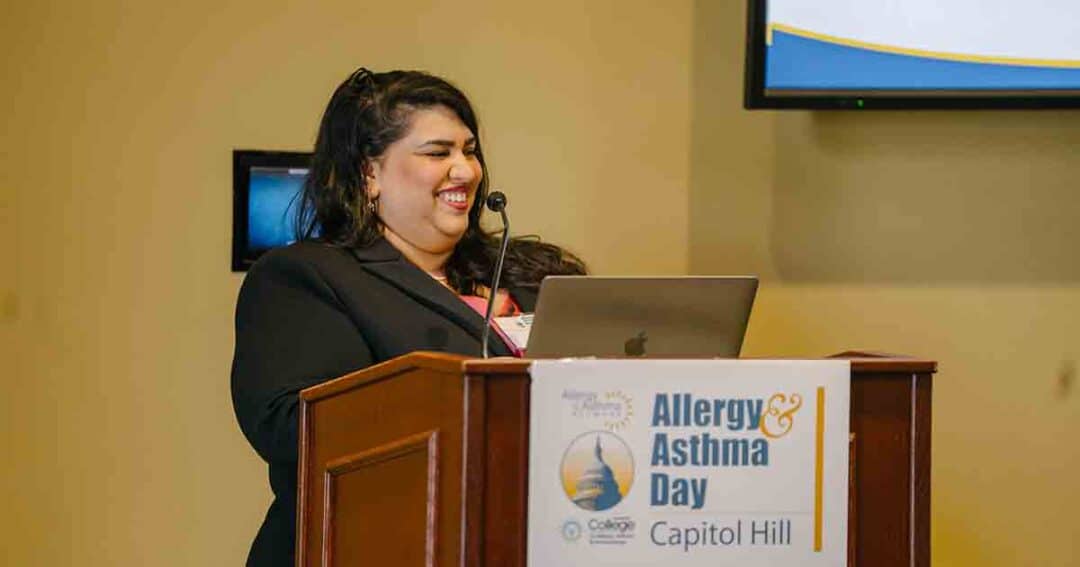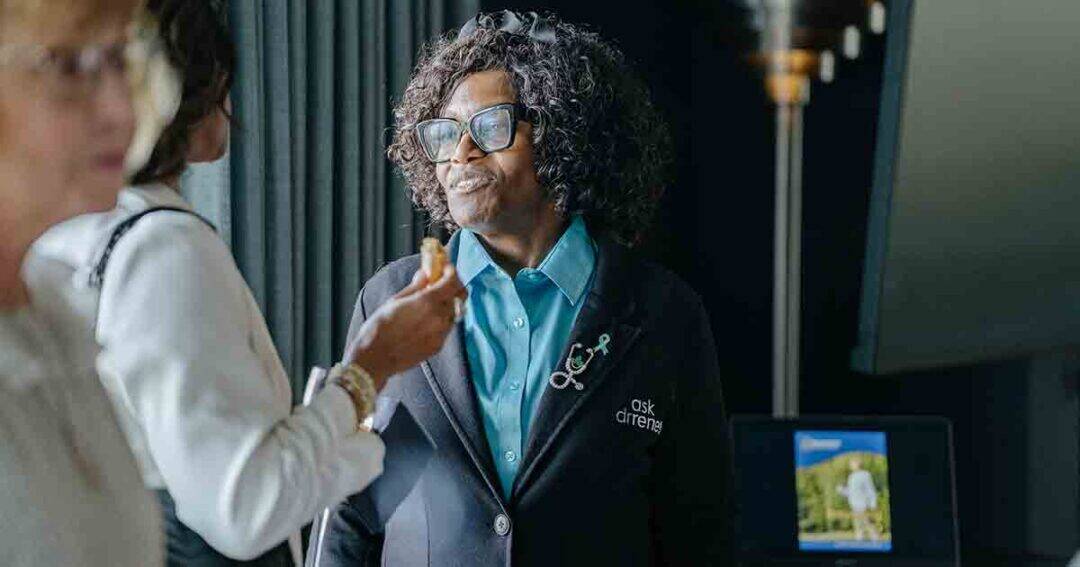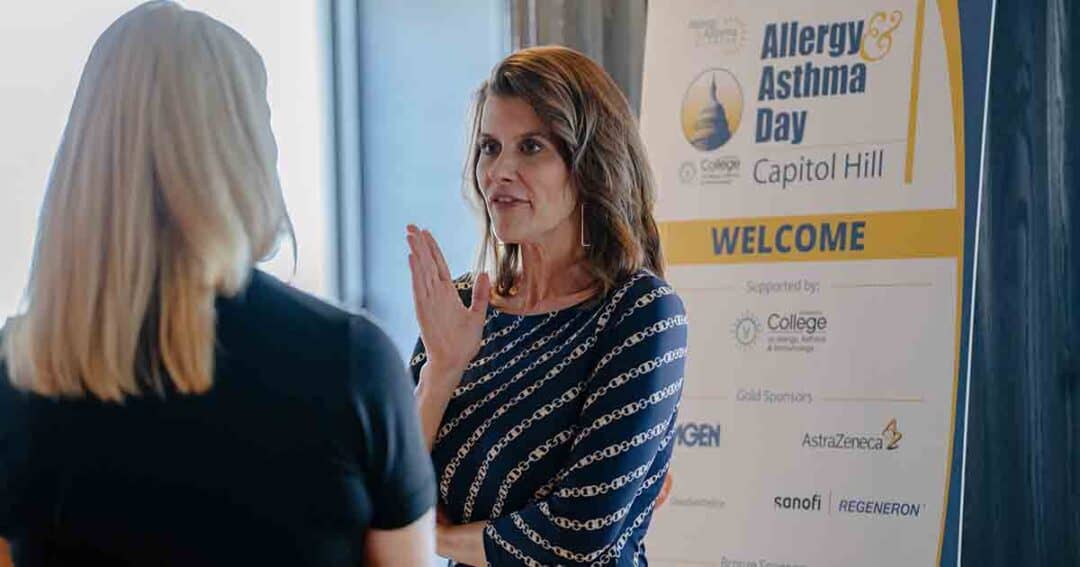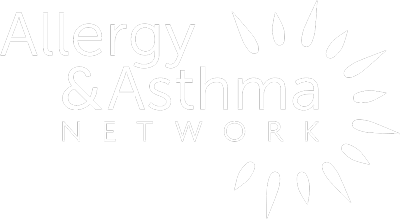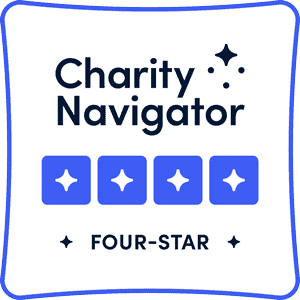Allergy & Asthma Day Capitol Hill 2025: Leading the Charge Amid Federal Policy Shifts
Published: May 19, 2025 Revised: June 13th, 2025
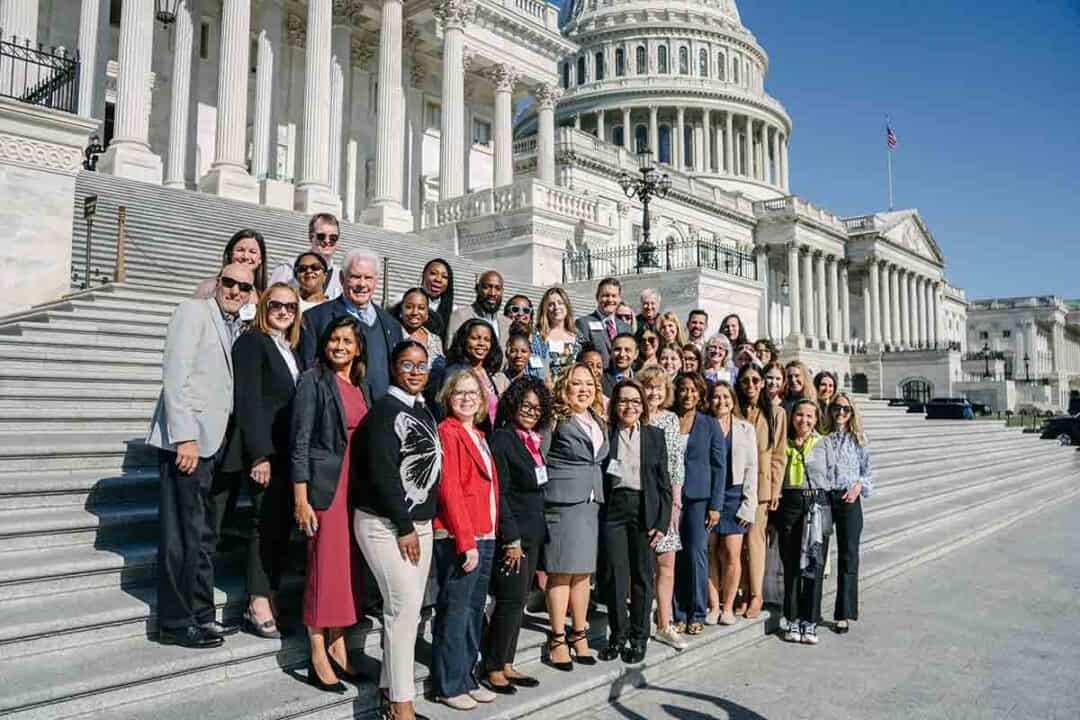
As the federal government undergoes a major restructuring – marked by workforce reductions and program cuts – Allergy & Asthma Network remains steadfast in its mission: ensuring the patient and caregiver voice is not only heard, but acted upon. These changes bring uncertainty, but they also present new opportunities for advocacy. The Network is rising to meet them.
On May 7, 2025, Allergy & Asthma Network convened more than 100 advocates for the 28th annual Allergy & Asthma Day Capitol Hill (AADCH) – a powerful demonstration of purpose and resolve. Representing 25 states and the District of Columbia, these advocates met face-to-face with members of Congress and staff in 120 House and Senate offices to advance the needs of people living with asthma, allergies, and related conditions.
At the same time, 436 supporters across the country participated virtually, sending 1,538 advocacy emails to Congress in support of life-changing asthma and allergy laws.
“Your efforts to raise awareness and advocate for legislation and policies that reflect the health needs of patients and families is vital,” said Lynda Mitchell, CEO of Allergy & Asthma Network. “Your advocacy will help people better afford their medicines and medical care, protect children with these conditions, and continue the pipeline of innovative treatments.”
“It’s an honor to advocate and lobby with all of you,” added Nissa Shaffi, Director of Advocacy at the Network, “especially since each of you brings a deeply personal connection to these diseases.”
Allergy & Asthma Network is grateful to the involvement and engagement from the American College of Allergy, Asthma & Immunology (ACAAI) during AADCH.
Scenes from Allergy & Asthma Day Capitol Hill 2025!
A Legacy of Leadership: Celebrating 40 Years of Advocacy, Awareness, and Impact

This year’s AADCH carried special meaning as it comes during the 40th anniversary of Allergy & Asthma Network. Founded in 1985 by Nancy Sander, the Network began as a mother’s mission at her kitchen table to raise awareness and provide trusted information. Four decades later, it has become the leading national nonprofit dedicated to elevating patient voices in public health, research, and policymaking.
At a special reception held on May 6 in Washington, D.C., Nancy joined her daughter Brooke and longtime supporters to reflect on the Network’s journey. What started as a mother’s determination has evolved into a national movement. The organization has influenced health policy, improved access to care, and empowered millions of families.
“I can’t tell you what an honor it is to be here,” Nancy said. “When I founded the organization, I had $8 worth of supplies and a passion in my heart to help others the way others had helped me and my daughter Brooke. She lived in and out of hospitals for the first 6 years of her life.
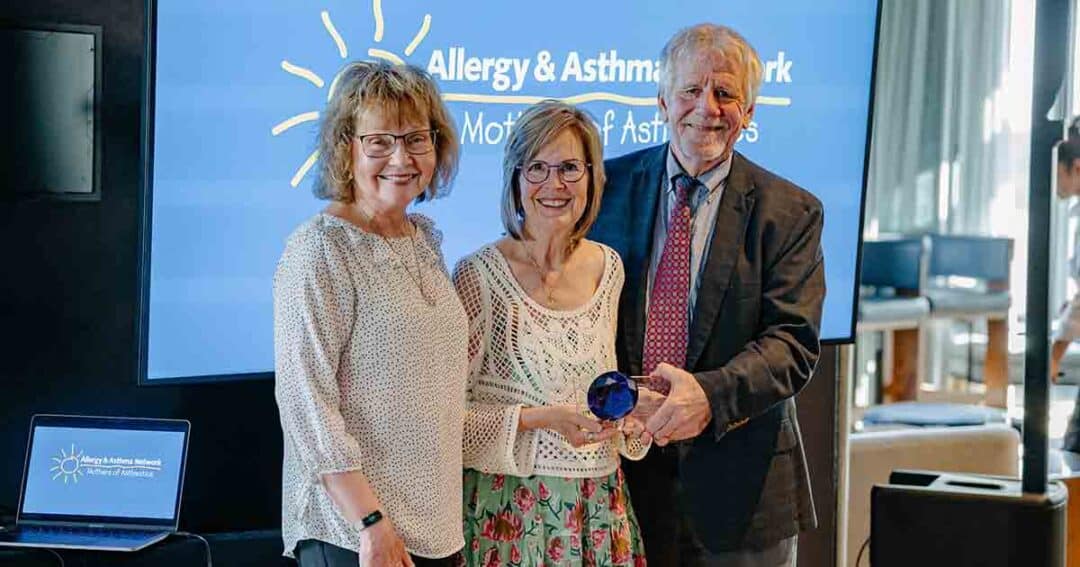
“Then we got into a joint study program at Georgetown University Hospital. That’s where we met Dr. Martha White and that’s where we learned about keeping a daily diary of symptoms, peak flow meters, and the importance of communication. And our lives transformed. I knew I had to get information about asthma out to other people. That’s how the organization started. People needed information.”
“From that first newsletter sent from my kitchen table to now, it’s been about helping patients and caregivers feel informed, supported, and never alone,” Nancy said. “I’m incredibly proud of what we’ve built together.”
The evening honored the Network’s trailblazing legacy and the advocates, leaders, and partners who have shaped the organization along the way.
“As we look to the next 40 years, we remain committed to driving change at every level – from the local community level to school nurse offices to the halls of Congress,” Lynda said.
Advocacy That Delivers: Legislative Priorities on Capitol Hill
This year’s AADCH comes at a critical time. Federal restructuring has led to the shutdown of the National Asthma Control Program at the U.S. Centers for Disease Control and Prevention (CDC). The NACP is a vital initiative that significantly reduced asthma hospitalizations and deaths through evidence-based interventions. Network advocates made an urgent call to restore NACP funding, emphasizing its role in saving lives.
In meetings across the Hill, advocates also rallied behind four key pieces of legislation:
Protecting Children with Food Allergies Act would require school food staff to complete food allergy training.
Chronic Disease Flexible Coverage Act allows employers who offer high-deductible health plans to cover chronic disease treatment before employees reach their deductible. This means patients can access care without paying full costs upfront.
HELP Copays Act requires health insurers to count the value of copay assistance toward deductibles or out-of-pocket maximums.
One School One Nurse Act addresses an ongoing shortage of school nurses by providing grants for recruiting, hiring and retaining school nurses in public schools.
In addition, the Network took a strong stand on pharmacy benefit manager (PBM) reform. Too often, patients face frustrating delays and high drug prices due to policies and profit-driven decisions by PBMs.
“PBM reform is essential to ensuring transparency and fairness in medication pricing,” Lynda said. “We must put patients before profits and ensure uninterrupted access to the treatments they need to thrive.”
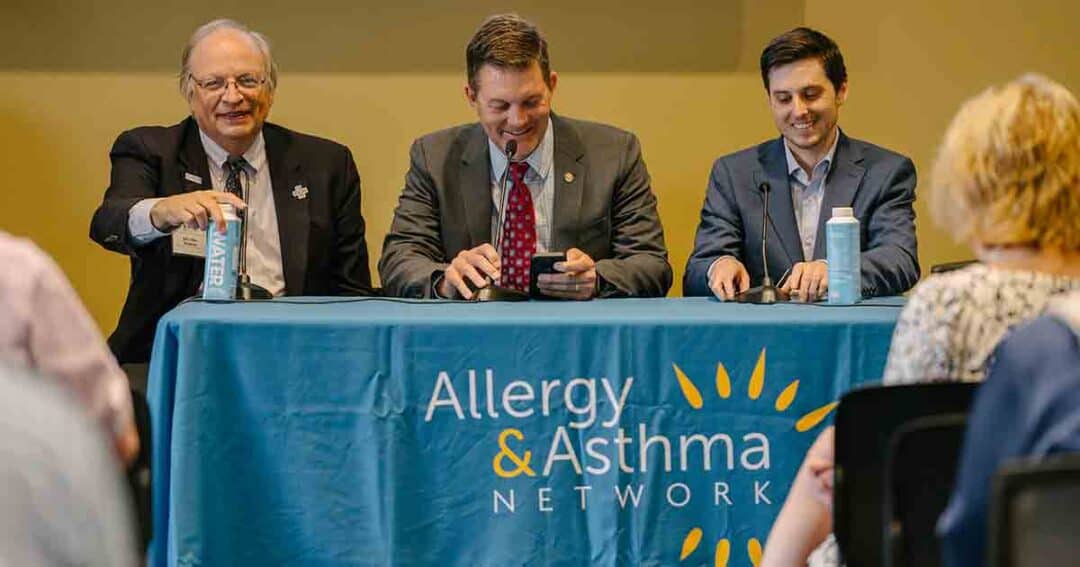
A panel discussion, moderated by Nissa Shaffi, highlighted the need to rein in practices like spread pricing, overuse of prior authorizations, and step therapy that delay care. Joining Nissa on the panel were Travis Miller, MD, Chair of the ACAAI Advocacy Council, J. Allen Meadows, MD, Executive Director of Advocacy and Government Affairs at ACAAI, and Casey McPherson, Director of Clinical Advocacy, Alliance for Patient Access.
Dr. Miller spotlighted the consequences: the removal of asthma inhaler Flovent from the market without formulary replacement by PBMs left patients struggling to find alternatives. It impacted the availability of an authorized Flovent generic – and put lives at risk.
Elevating Voices in Congress
At the mid-day Congressional Lunch Briefing, held at the Rayburn House Office Building, attendees heard directly from U.S. Rep. David Valadao (CA), co-chair of the Congressional Asthma & Allergy Caucus.
“Thank you all for being in Washington this week and advocating for millions of Americans living with asthma and allergies,” Valadao told AADCH advocates. “These conditions have a serious impact on people’s lives and make simple day to day tasks incredibly difficult.”
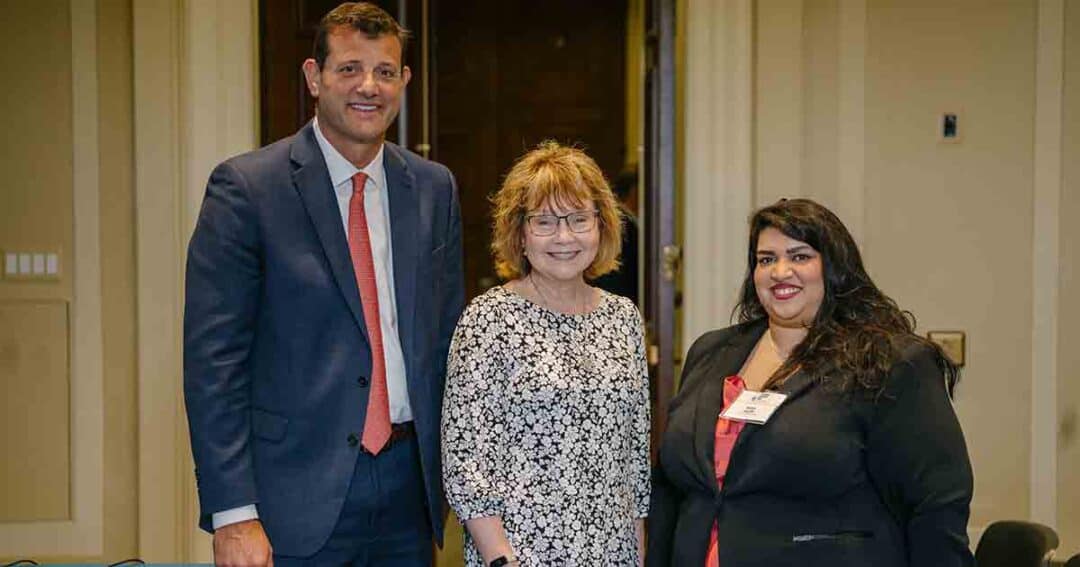
Valadao represents California’s San Joaquin Valley, which has the highest asthma rates (17.6%) in the state.
“As co-chair of the Congressional Asthma & Allergy Caucus, I’m committed to working with my colleagues in Congress to support legislation that expands access to care and increases funding for research,” Valadao said.
“I have introduced a bipartisan resolution with my Caucus co-chair, Congresswoman Debbie Dingell (MI), to designate the month of May as National Asthma and Allergy Awareness Month. The resolution aims to help educate communities on the quality of life issues that affect people with asthma and allergies.”
Where We Go From Here
As we reflect on four decades of impact, Allergy & Asthma Network looks forward with renewed purpose. Our advocacy is grounded in the stories of real patients and families. We are driven by a singular mission: to ensure no one is left behind in their journey with asthma, allergies, and related conditions.
Through education, coalition-building, and legislative engagement, we’re not just responding to today’s challenges. We focus on tomorrow’s solutions. Join our cause. Influence decision-making. Reduce barriers to care. And help us drive the next 40 years of progress.
➤ Visit Allergy & Asthma Network’s advocacy site – to find out how you can raise your voice, access resources, and Take Action to support asthma and allergy legislation. In just a couple clicks, you can send letters and emails to members of Congress.
Supported by:
